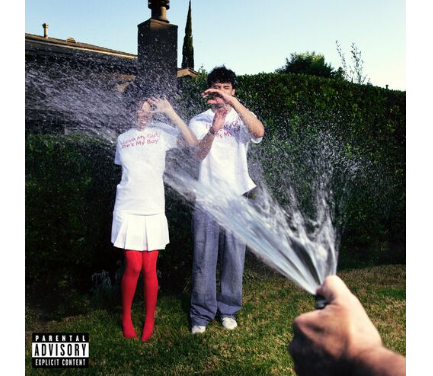Del Rey finds new sound to tell story of failing relationship
Justin Higuchi via Wikimedia Commons
Lana Del Rey’s new album, Blue Banisters, was released on Friday.
Through the gloomy Americana and young Hollywood tales on Born to Die and the country-esque reformative songs on Chemtrails over the Country Club, Lana Del Rey has proven that she is able to beautifully articulate her thoughts through music. On her latest album, Blue Banisters, she does so again.
But musically, Blue Banisters blends together new sounds with old, encapsulating a new style for Del Rey.
The title song is reminiscent of certain songs on Chemtrails over the Country Club, with mentions of the Midwest, where the album was set. But it adds elements that were present in her earlier music, through piano and soft sounds.
Though romance has been central to Del Rey’s music, this new take reveals her growth.
Del Rey sings about how she wishes the man she was with could provide her with the perfect suburban life. She wishes for him to “paint my banisters blue,” which is a metaphor for rebirth. At the end of the song, she mentions how her sisters paint them instead, showing how she has become less reliant on men.
In her early career, Del Rey was known for romanticising abusive relationships with older men. This sentiment especially was present in her song “Ultraviolence,” in which she claims “he hit me and it felt like a kiss.” Now she is not only able to grow past her abusive relationships, but also find new support groups to build herself up.
She describes a failing relationship throughout the album with the songs “If You Lie Down With Me,” “Sweet Carolina,” and “Violets for Roses.”
Though romance has been central to Del Rey’s music, this new take reveals her growth. She sings about her vulnerability, giving the whole album a more personal feel to it.
The overall sound of the album is the perfect blend of her old work and newer work. Her latest albums have had stylized sounds, with country elements being notably different from anything that had come before, while her older albums were gloomy and almost aggressive.
With this album, Del Rey has been able to find the right balance between the two and is able to express her renewed self through this sound.
“Black Bathing Suit” is the perfect example of Del Rey wrapping up her past and channeling it through music. She calls back to her “bad girl” past with background instrumentals that are noticeably similar to ones that showed up on her older albums. It then switches to the more traditional sound found on much of the rest of the album.
Del Rey masterfully uses music to reference her past and distinctly differentiate herself from it. Instead of explaining to listeners how she has changed, she allows the music to do it.
One of the most notable elements of the album is Del Rey’s voice.
Characterized by soft, angelic sounds, Del Rey’s past music has never ventured into anything aggressive, usually portraying emotions of gloominess and desire. But Del Rey bares her soul by singing passionately on certain songs on the album, most iconically in “Dealer.”
She begs for people to not invade her privacy, and belts out “I don’t wanna give you nothing/’Cause you never give nothing back.” Uncharacteristically, Del Rey uses a more strained voice singing these lyrics, embodying her anger and anguish with those trying to look in on her personal life.
A pleasant addition to the album is “Interlude.” The musical components take listeners back to Del Rey’s old work and act as a stark contrast to the sound of the rest of the album. It’s almost a tease that serves to show her growth as an artist.
Unsurprisingly, Del Rey has managed to orchestrate the perfect melancholic story of a failing relationship.
Some fans may be weary with the few genre changes she has made, but Blue Banisters proves that Del Rey can always deliver captivating stories with dream-like sounds that express her feelings in a way that many other artists cannot.

News Editor Leila Usanovic is a junior in her third year on the Purbalite staff. When she’s not writing reviews and news for the Purb, she can be found...

















